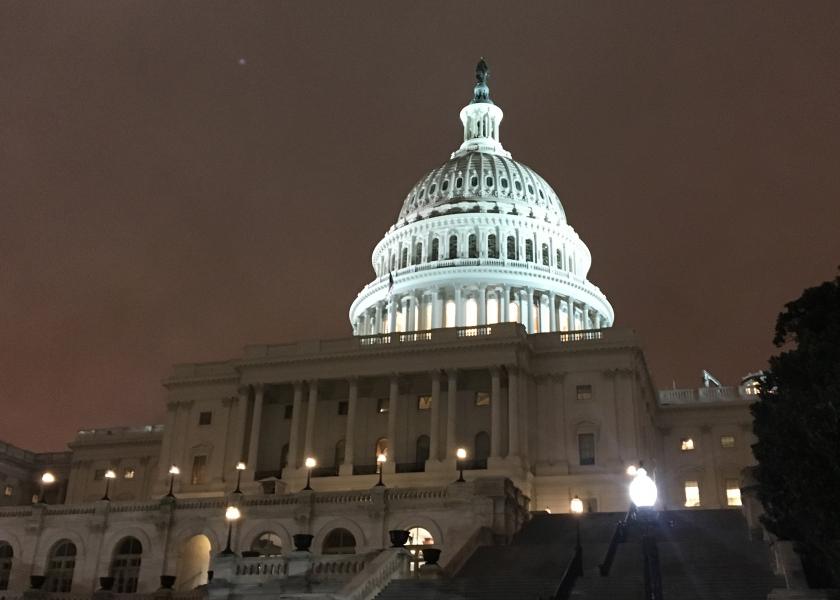Liability protection sought in coronavirus assistance package

Liability protection for employers and business owners is being sought by Senate Republicans in the next coronavirus assistance bill.
Hunt Shipman, principal and director of Cornerstone Government Affairs, said the $3 trillion Health and Economic Recovery Omnibus Emergency Solutions Act (HEROES Act) that narrowly passed the House on May 15 does not include liability protection for employers and for business owners as they serve customers. The legislation is the fourth round coronavirus legislation taken up by Congress, and the Senate is looking to make changes as it takes up the legislation.
Shipman made the comments during the Produce Marketing Association’s May 27 Virtual Town Hall.
“It’s been a distinct interest of Senate Majority Leader Mitch McConnell (R-Ky.) to ensure that the next legislation includes liability protection,” Shipman said.
Republicans want to give businesses a “safe harbor” if they follow government guidelines on COVID-19, and liability protection to require any claimant to prove gross negligence or willful misconduct by a business if a lawsuit is filed, he said.
The protection would give employers a federal court venue in circumstances where there are parties from different states involved in a claim, and would preempt state regulations unless a state is providing stricter limits on liability than what the federal bill ultimately provides, Shipman said.
“I think it’s important to also point out that these are things that have not only been identified as important to the business community, but universities are also looking for some protections there as well,” he said.
In addition, the next federal legislation will address the needs of state and local governments who have seen declines in tax revenue because of COVID-19 related business slumps.
Grower payment limits
The HEROES Act passed by the House also includes $16.5 billion in direct agriculture assistance and funding for the Specialty Crop Block Grant program.
Shipman said one of the challenges that USDA has had is that when it implemented the CARES Act (the third coronavirus assistance legislation), the funding for the program was limited and past practice has been that maximum limits apply to direct payments. Produce industry leaders say the high cost of inputs for specialty crops make those payment limits ill-suited for their operations.
“There’s a bill that’s been introduced in the House of Representatives by Congressman Austin Scott from Georgia (Republican) to provide $50 billion to USDA’s Commodity Credit Corporation for direct producer assistance and to eliminate payment limits associated with that,” Shipman said.
“It’s premature to probably predict how any one of these (provisions) will ultimately fare and which individual provisions ultimately become law, but I think it’s instructive to understand what topics that are being discussed in Congress,” he said.
Payment program questions
During the May 27 PMA Virtual Town Hall meeting, Bruce Summers, administrator of the Agricultural Marketing Service, the U.S. Department of Agriculture branch that oversees the Coronavirus Food Assistance Program (CFAP), spoke about payments.
The program provides payments to growers, including specialty crop growers, who have suffered a 5% or greater price decline or who had losses because of supply chain disruptions from COVID-19 and face additional significant market costs
Summers said specialty crop growers could begin applying for payments May 26 and that application period will continue through Aug. 28. The USDA AMS is helping officials at the Farm Service Agency, which implements the program, to answer questions about specialty crop grower applications to the program, Summers said.
“One tricky thing about specialty crop producers is that they don’t have futures markets, (commodities) are not on the commodity exchanges and so pricing information is very difficult,” he said.
The USDA Market News Service has data from January to April to determine that 44 fruit and vegetable commodities suffered a 5% or greater price decrease. But there are many commodities that USDA does not have data on, Summers said.
However, there is a process where grower groups, associations and other industry leaders can submit data to USDA showing evidence of price declines because of COVID-19 conditions, he said.
“This notice of funding availability was published last week is intended to give the producers a chance to come in and say ‘Hey, we suffered this loss in our sector. We should be getting this direct payment to help us through this period,’” he said.
He encouraged growers to go to the USDA website at farmers.gov to find more information about the CFAP program. The website also says a CFAP Call Center is available for producers who would like one-on-one support with the CFAP application process at 877-508-8364.







